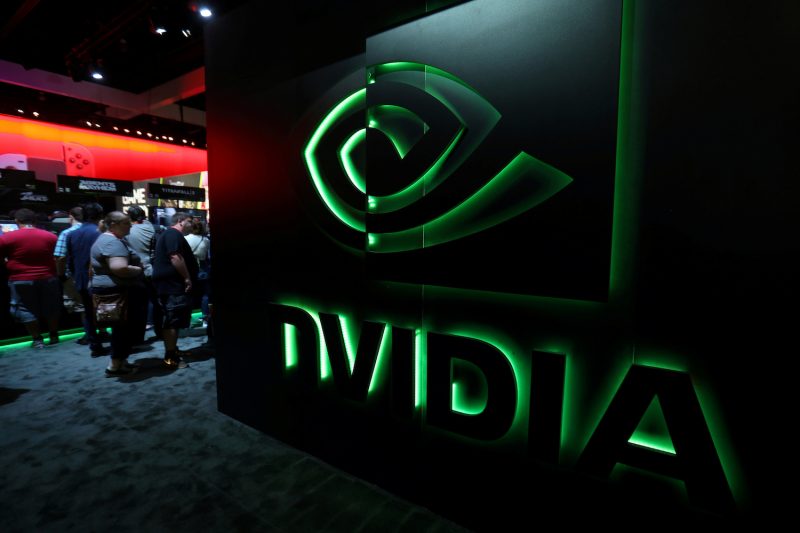Nvidia could face at least $1 billion in fines in China after Beijing said on Monday it would launch an antitrust investigation into the U.S. chipmaker.
The State Administration for Market Regulation, which announced the investigation, said Nvidia was also suspected of violating commitments it made to China when it acquired Israeli chip design company Mellanox Technologies in 2020.
The agency did not specify how Nvidia might have violated regulations in either case, but comments in Chinese state media on Tuesday suggested the move was in response to Washington’s ongoing crackdown on exports of advanced artificial intelligence chips to China.
Also Watch AF: Western companies follow China in sourcing critical minerals
State media outlet China Daily talks about the Mellanox acquisition said in an editorial Regulators in Beijing only approved the deal after Nvidia provided certain guarantees about supplying chips to China.
“However, in recent years, Nvidia has stopped supplying many GPU accelerator products to China, citing the U.S. government’s export controls,” the company said.
The editorial also stated that the investigation should not be regarded as “a tactical move in the Sino-US trade war.” On the contrary, Beijing’s mouthpiece said, it was an attempt to “create a level playing field for foreign companies”.
Nvidia could face fines of up to $1.03 billion if it is found to have violated Beijing’s market rules, According to the South China Morning Post on Tuesday, Chinese media were quoted as saying.
The report pointed out that under China’s anti-monopoly law, companies may face fines of 1% to 10% of the previous year’s sales. The US$1.03 billion will account for 10% of Nvidia’s sales in China in fiscal year 2024.
Liu Xu, a researcher at Tsinghua University, told the South China Morning Post: “If the violations are particularly serious… you may face the maximum penalty – two to five times – a fine of US$2.89 billion.”
The last time China launched an antitrust investigation into a well-known foreign technology company was in 2013, when it investigated Qualcomm’s local subsidiary, accusing it of overcharging and abusing its market position in wireless communication standards.
Qualcomm later agreed to pay a $975 million fine, the largest fine China had ever imposed on a company at the time.
What’s the Mellanox deal?
In 2020, Nvidia sought China’s antitrust approval for its acquisition of Mellanox and successfully received conditional approval from Beijing, which relieved investors who were worried that Sino-US trade frictions might complicate the process.
The conditions set by Beijing require Nvidia and the merged entity to supply GPU accelerators to the Chinese market on “fair, reasonable and non-discriminatory” terms.
The companies are also required to offer customers and resellers the opportunity to purchase up to one year’s worth of inventory of Nvidia GPU accelerators and Mellanox networking equipment.
The conditions also prohibit forced product bundling, unreasonable trading conditions, purchase restrictions and discriminatory treatment of customers who purchase products individually.
China Daily said in an editorial that the merger “strengthens Nvidia’s market dominance.”
Nvidia’s cutting off the supply of GPU accelerator products to China “violates the legitimate rights and interests of relevant Chinese companies.”
How does this relate to the chip war between China and the United States?
In response to the investigation, a Nvidia spokesperson said the company strives to “deliver the best products in every region and deliver on our commitments wherever we do business.”
“We are happy to answer any questions that regulators may have about our business,” he added.
Meanwhile, Nvidia shares closed down 2.5% on Monday and fell further slightly in pre-market trading on Tuesday.
Antitrust probe comes two weeks after Beijing Expressed support for Nvidia’s efforts “Take root” in the motherland.
This may be part of Washington’s latest round of rare coordinated responses to restrictions on China’s exports of artificial intelligence chips.
Since the new restrictions were announced, China’s four main industry bodies have called on domestic companies to buy locally made chips. Says buying U.S. chips is “no longer safe”.
Beijing also announced Comprehensive ban on the export of three key minerals – Gallium, Germanium and Antimony – Shipped to the United States.
How will this affect Nvidia?
Before Washington began imposing a chip ban in 2022, Nvidia held more than 90% of China’s artificial intelligence chip market. It has since been unable to sell some of its most advanced chips, such as the A100 and H100, in the country.
In the year to the end of January, the Chinese market’s share of Nvidia’s revenue has fallen to about 17%. Before U.S. chip restrictions took effect two years ago, its share was 26%.
Nvidia now also faces increasing competition from domestic rivals, chief among them Huawei.
But Nvidia CEO Jensen Huang said, just last monththe chipmaker is committed to maintaining its business in China. Nvidia also said in July The company is tweaking its new Blackwell AI chip to create a version that can be sold in China.
Even so, China’s antitrust probe is unlikely to have much impact on the company, especially in the short term, since most of its most advanced chips are already restricted from being sold to China, said Bob O’Donnell, principal analyst at TECHnaanalysis Research. .
“It is clear that the Chinese government is trying to respond to the recent U.S. restrictions, but the impact of these restrictions on the U.S. semiconductor industry continues to diminish over time,” O’Donnell said.
- Vishakha Saxena, Reuters









